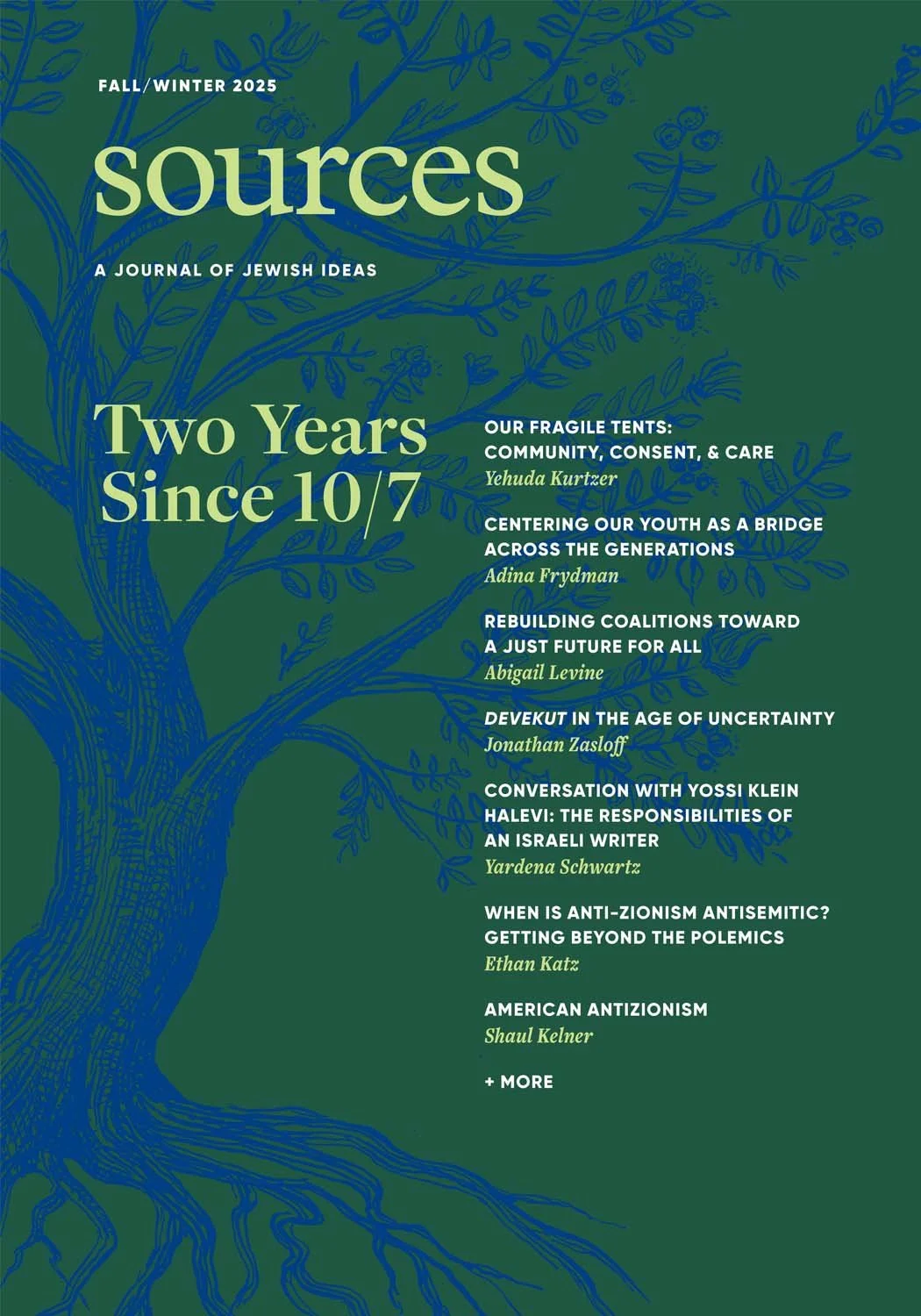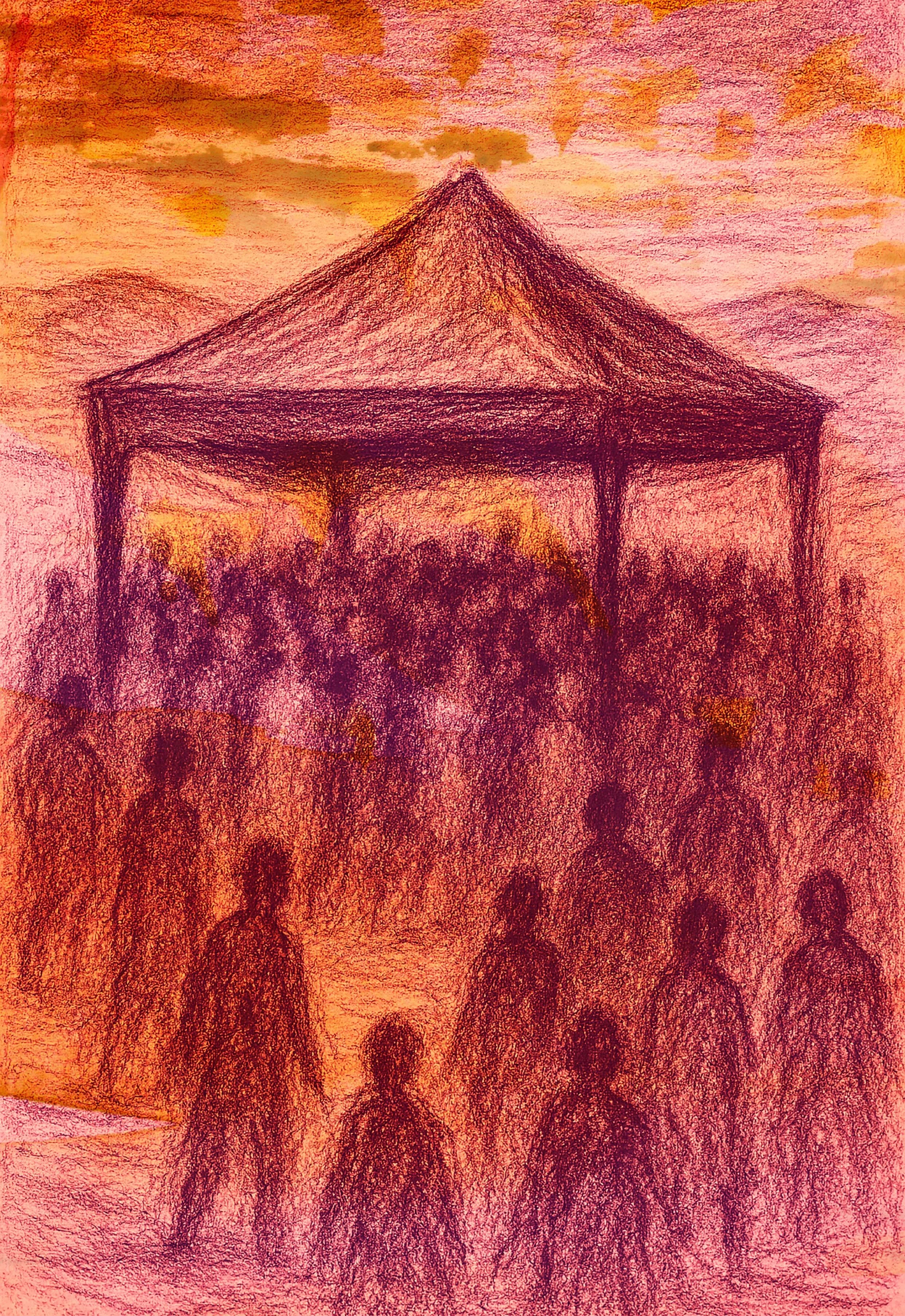Lamentation
Poem
Ruth Kara-Ivanov Kaniel
For Ada Rapoport-Albert (1945-2020)
How will I see your face?
A closure imposed on the world,
a closure within prismatic boundaries,
Human bodies
Enclosed within the gates of night.
Your pain pierces my heart with two ruptures
No exit and no entrance.
If you reach out your hand, beloved,
If like a tear you fall, you’ll dissolve the brimming edge.
In a narrow room, running to and fro, we seek you.
Heal her now, O God, I beseech You, in one of Your names
Heal her.
From afar I would bring you bread,
Would kiss the lids of your beautiful eyes,
On merchant ships I’d prop you up,
My dagger drawn against the abductor,
I’d march toward you at the head of a column of troops,
My dream entering yours.
Your face rises from the darkness
Your lips like scarlet strands
All those teachings you have gleaned
In another field
The smell of smoke still acrid
The water is warm and we are trembling
Another morning rises from the washing.
Eternity belongs to the intrepid.
A holiday is coming soon.
Translated by Benjamin Balint
איכה
לעדה רפפורט ז"ל
אֵיכָה אֶרְאֶה פָּנַיִךְ
סֶגֶר מוּטָל עַל הָעוֹלָם, סֶגֶר בִּגְבוּלֵי אֲלַכְסוֹן
גּוּפֵי בְּנֵי אָדָם
בְּשַׁעֲרֵי הַלַּיְלָה נִנְעָלִים
כְּאֵבֵךְ נוֹקֵב שְׁנֵי חֹרִים בְּלִבִּי
אֵין יוֹצֵא וְאֵין בָּא
אִם תּוֹשִׁיטִי יָדֵךְ אֲהוּבָה
דִּמְעָה אִם תִּפֹּל, תָּמֵס אֶת הַגְּבוּל הַגָּדוֹל
בְּחֶדֶר צַר, הָלוֹךְ וָשׁוֹב, עָלַיִךְ אָנוּ מְבַקְּשִׁים
אֵל נָא פְּתַח נָא, בְּאֶחָד מִשְּׁמוֹתֶיךָ
אָנָּא רְפָא נָא לָהּ
מִמֶּרְחַקִּים הָיִיתִי מְבִיאָה לַחְמֵךְ
מְנַשֶּׁקֶת שְׁמוּרוֹת עֵינַיִךְ הַיָּפוֹת
בָּאֳנִיּוֹת סוֹחֵר מַעֲמִידָה קוֹמָתֵךְ
חַרְבִּי שְׁלוּפָה כְּנֶגֶד הַחוֹטֵף
בְּרֹאשׁ גְּיָסוֹת צוֹעֶדֶת לִקְרָאתֵךְ
כְּשֶׁחֲלוֹמִי נִכְנָס אֶל חֲלוֹמֵךְ
פָּנַיִךְ עוֹלוֹת מִתּוֹךְ הַחֲשֵׁכָה
חוּטֵי אֹדֶם שְׂפָתַיִךְ
כָּל הַתּוֹרוֹת שֶׁלִּקַּטְתְּ
בְּשָׂדֶה אַחֵר
רֵיחַ הֶעָשָׁן עוֹדֶנּוּ בּוֹעֵר
הַמַּיִם חַמִּים וְאָנוּ רוֹעֲדִים
עוֹד בֹּקֶר צָץ מִן הָרַחְצָה
נֶצַח נִמְנֶה עִם גְּבוּרָה
עוֹד מְעַט בָּא חַג
Author’s Note
I was born in Russia and emigrated to Israel from Moscow in 1987. Since childhood, I have dreamt in multiple languages: Russian-language poems mix in my nocturnal world with the Aramaic of the Zohar, the book which I study and teach; Hebrew is interspersed with other metaphorical and abstract languages, and ideas woven from modern art, literature, psychoanalysis and feminism. This poem, too, reflects the diverse paths through the forest of my soul.
One of the most unforgettable experiences in my childhood was visiting the circus, where acrobats and clowns seemed to traverse space in magical ways. In that carnival world, unlike in real life, one can jump over any border and boundary. The challenges of the last two years have underscored our vulnerability as human beings who are desperately dependent upon one other. Restrictions have emphasized the impassable boundaries between continents and countries, and the barriers that are placed between our beloved and us, body and soul, life and death.
The Biblical call, Eicha, carries a double meaning: it is both a rhetorical question (“How?”) and an act of unanswerable sorrow. Can our souls defy the boundaries of body and space and reach out, like those acrobats I once saw, to touch another? This question begins with the title of my poem, continues through the opening stanza (“How will I see your face?”) and concludes with the ritual of sefirat haomer (counting the weeks from Passover to Shavuot), Rebbe Nachman of Breslov relates that the Frankist and Sabbatian heresies made his grandfather the Baal Shem Tov ill, as though “two holes were pierced in his heart.” The Baal Shem Tov’s illness stemmed from his ability to feel the pain of even those people from whom he was distant in space and sensibility.
Can I feel the pain of a person I really love? Through my dreams, I could, I can. In a way, grieving for our beloved can indeed cross universes, overcome un-reversible distances, and unfasten the most heavily padlocked gates in heaven. Words of prayer and love serve as an acrobatic magical jump, a “leap of faith.”
This poem was written in a memory of the brilliant scholar and teacher Ada Rapoport-Albert, a remarkable woman who inspired my own path.
This poem appears in Sources, Spring 2022
Ruth Kara-Ivanov Kaniel is a research fellow of the Kogod Research Center at the Shalom Hartman Institute and a lecturer in the department of Jewish thought at Haifa University. She is the author most recently of The Feminine Messiah: King David in the Image of the Shekhina in Kabbalistic Literature (2021). Her latest book of poems, Diamonds and Ashes, will be published this year by Pardes Press.




